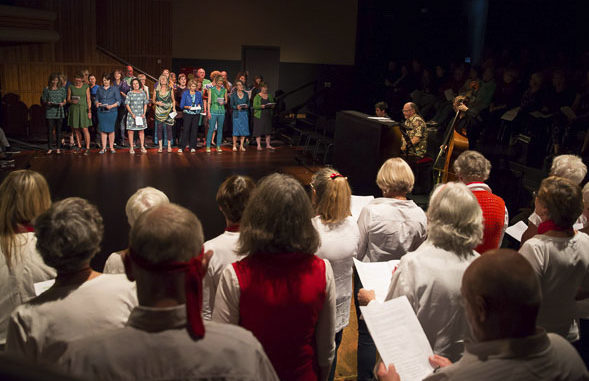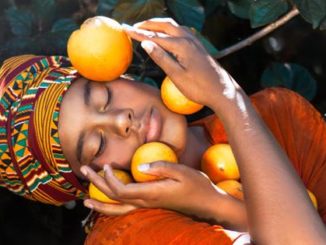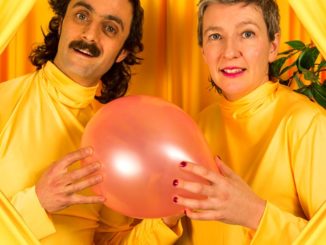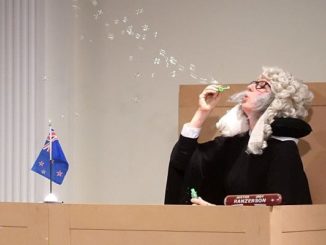
[Voice of an Intergeneration]
Opening this week under the helm of Jo Randerson in association with Auckland Live is Sing it to My Face, a show that invites everyday people from the community from different generations to express their concerns to each other through song. After premiering at Wellington Cathedral in 2014 the show also has had immensely successful seasons in Wanaka, Nelson and the Wairarapa.
NATHAN JOE: What inspired you to create the show?
JO RANDERSON: I was thinking about what I would term intergenerational prejudices. In particular, I was at a my-age-bracket-dinner-party and people were going like “what’s a meme?” and “is it just me or are the young people not doing anything meaningful with their art?” You just hear these broad statements bashed around. And there are obviously shifts and change that we make, but also there are kind of zeitgeists that happen. Like all of us are going through a climate change zeitgeist. It’s not just the young people who are really concerned about that. I’m a mother of two and I have been super anxious about that for the last 15 years. Even before I had children. The idea of Sing it to My Face is, if you have something to say, say it to my face. Let’s actually put these things out there in a way we can listen to each other and hopefully move on from that. It’s not so much a choir battle. It’s singing strong sentiment to hear each other. Hear our differences.
I’ll break down the process for you a little bit more. We do surveys. We do a call out to the different generations. You have to choose: under 30, 30-60, or over 60. And you’re invited to generalise about your generation. How you see yourself. What are some of your strengths? What are some of your challenges? And then you’re invited to do the same for the other different generations. So you get some stealth reflection on a positive and negative front. And there’s a lot of difference. Not all young people think this. Not all old people think this. The show really tries to hold that range of opinion in that way. There’s a whole lot of different thinking out there. And also a lot of connective hope.
NJ: What does the directing process look like in the rehearsal room?
JR: Well, because we work with an entirely new cast every time… that’s what I really like. It’s always different. We always resurvey. All of the text comes from what people have said. I haven’t written any of the text. My job as a, first of all, text editor, is to edit what has come forward from people and restructure that into the show. So it’s a combination of things that have been said in the past and then we always update it anew each time. And this time it’s changed. There’s a lot more about climate change – I find the younger voice is a lot stronger this time. That’s always the beautiful thing, hearing how it’s changed. And also hearing how it’s regionally changed. In Wanaka there was a lot about housing. Because down there is a particular situation where a lot of people own holiday homes but aren’t there 95 percent of the time. So you always get a specific flavour depending on what region you’re in.
And bringing a new group of people together, we have 103 performers, which is our biggest ever, which is what you’d expect from Auckland City. It’s a very broad range of singers, age-wise. We always talk about diversity, but we don’t always talk about age diversity. And that’s one of the things I’ve loved doing this. It can be quite moving. One of the university students in Pōneke burst into tears when one of the oldest over-60s came into the room. Just because “I haven’t seen an old person in ages” is what they said.
We come in and we have a hard and fast week with our performers. Julian Raphael, who is our musical director and composer of all our songs. I don’t know anyone who can work as well as he can in a short time to get 103 people singing amazingly. We just go through the songs over and over. Some people have spoken parts. It’s about helping people feel comfortable and confident and just be themselves.
NJ: What’s surprised you the most during this process?
JR: I’ve been surprised at how emotional it is. It always kind of gets me as well. You’re on in a week, gotta work fast, gotta get this, gotta get the lights, doing subtitles for the first time… And then people will be singing and you’ll see the waves of emotion come over people. I think singing is a beautiful human form that we’ve always done. And that’s a powerful act within itself. But then the things that people are singing… They’re being very vulnerable about their angers, their difficulties, their hopes. I feel like I sit there in rehearsal and get these big waves of emotion. I think that really surprised me the first time. I was not prepared for how much it affected people. Both the participants singing and also the audience. Because it’s quite an intimate piece in a way. It’s in a traverse, so the audience are on both sides. The choir signing from different sides – we don’t call them choirs actually because that word can make people feel like they need to be professional singers.
So everyone’s in quite close contact with each other. You could reach out and touch each other. I think this live form is quite powerful for people, especially in the digital age. So the act of coming together as a group of people. Not just a big spectacle on the stage. You’re really close in the action, and everyone wants to stay and talk afterwards. I think that really surprised me. I thought, Oh god is this a bit earnest? It’s very different than writing a play. Or making something fictional. That’s been the biggest learning and excitement making up this new form. It’s like a documentary but it has a creative remove. It’s not just someone with a mic asking you what you think. It’s through song. It’s through some reflective written surveys.
NJ: Were there any other projects that you’ve worked that have helped you come to this process?
JR: Definitely. I think it’s been a long journey of being interested in this form. It started for me the more I was devising with people, particularly when I made Yo Future with younger performers. It’s like, I could write a play about the future but I’d rather know how you feel as 18 year olds. What are your thoughts about the future?
And then we did Brides. We had wedding dresses in a shop while the marriage equality bill was going through, and we invited people to wear a dress and do an interview on what marriage meant to them. Using a creative prompt to allow people to express something real that they wouldn’t probably express in a linear way, I think that’s a long interest. And I still have so much more to explore around that.
NJ: For you and Barbarian Productions as a whole, is there an underlying constant or theme in the work you’re making?
JR: That sense of togetherness to us. The live experience. I love digital technologies. I love them being part of the things we do. But also, for me, we’re needing to come together in one live space. And I’m curious about how theatre can help provide that. And not just sitting together like in the cinema. And togetherness with difference. Out of our little echo chambers.
And then the fun. I think we really try to bring a spirit of joy. I mean, there’s so much of concern in our world right now. We go to clown as a form because it helps us deal with the weight of that. We’re serious about that stuff, but we need to bring some lightness and joy to it as well.
And the radical. It’s politicized work. It has something to say. And it’s trying to work towards a world… I think there are multiple revolutions happening at once. Which is really exciting, but also quite overwhelming. The political act. The environmental act. The honouring our first nations act. Honouring our gender spectrum. Honouring women’s voices. Honouring young and old voices. It’s definitely key to us.
NJ: Are there plans for the future of the show?
JR: We are working on a film version of it. Not filming the show. Not making a documentary about the show. But trying to do this work in a filmic way. So that’s in development at the moment with an awesome documentary maker called Jess Feast.
We have enquiries about the work. Some from Australia. Some from Germany. I’m quite curious about the idea of people swapping templates. There are some beautiful forms in Australia that I’m like… Can we do that here? Can we license to do that and vice versa? We don’t want to fly around the world to do stuff as a company. We don’t like that environmental footprint.
NJ: What’s the number one thing you’re hoping to leave the audience with?
JR: I genuinely hope that people feel quite moved. I know that’s a trite thing to say. But I don’t want people to feel impressed. I want them to feel shifted. But with this piece, I hope people feel strong sensations in their heart and that they can express those in some ways. That people will hear some things they haven’t heard before. Or hear them in a way to help them to feel compassion for a younger generation. I really don’t think people grasp how hard it is for the younger generations coming through. But equally I feel there are tons of misunderstandings about the older generations. And I also would like people to feel some hope. Because it’s so overwhelming the problems we are facing. And whether we can overcome some of the situations we are in, I think the only way is to keep trying. I hope we can feel collectively like we’re not alone in our fear and confusion, so together we can do things to work towards a better world. There you go, that’s pretty earnest! [laughs]
Sing it to My Face plays at Auckland Town Hall from the 17th-20th October.
Book here.




Leave a Reply